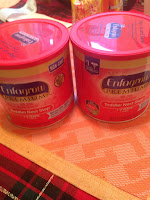 |
| Foreign baby formula is worth its weight in gold in China! |
 |
| Designer bags are very popular |
Chinese consumers circumvent
the high taxes by buying products through daigou's. They buy products
while abroad and ship the products back to China for sale at a markup.
Despite the costs and time involved in this practice, it is still cheaper for
Chinese consumers to buy products through daigou's than from retail outlets in
China. The fact that many of the products purchased abroad and sold by
daigou's in China have "made in China" stamped on the back of them
makes this practice incredibly surreal. For example, something is:
1. Made at a factory in
China
2. Shipped to a
port
3. Loaded on a ship and shipped
across the Pacific Ocean
4. Unloaded at a port in
America
5. Loaded onto a truck
and shipped across the country
6. Unloaded and put on
display in a store
7. Purchased by a daigou
(after they receive an order from a consumer back in China)
8. Purchased, packaged, and
shipped by the daigou
9. Sent to a sorting
facility
10. Shipped to a
port
11. Loaded onto a
ship
12. Sent across the
Pacific Ocean
13. Unloaded at a port in
China
14. Shipped by truck to a
sorting facility
15. Delivered by a delivery
service to the Chinese consumer in China
And the item still costs
less than if the Chinese consumer bought it off the shelf at their local store!
 |
| Items like this a listed on WeChat accounts |
Some daigou's have the ability
to carry the items they've sold through customs. You'll see hundreds of
daigou's at the Shenzhen and Hong Kong border. Follow the link to see a
YouTube video about the border. Whenever I arrive at Beijing Capital
Airport, I rarely see anyone go through the line to declare items at
customs. Even individual travelers with five or six suitcases go through
the "nothing to declare" line without a problem. It's painfully
obvious that these people are daigou's returning to China with items purchased
abroad.
So why don't customs officials
stop them and make them pay taxes on the suitcases full of items they've
purchased for resale? There's a lot of speculation about why the Chinese
government turns a blind eye to daigou's. I think it's because it allows overseas Chinese to generate wealth without having them interact with us "natives." Feel free to speculate in the
comments below....
https://www.youtube.com/watch?v=YQm5FZMforg
http://www.scmp.com/news/china/policies-politics/article/2121377/china-cuts-import-tariffs-range-consumer-goods
http://www.nzherald.co.nz/business/news/article.cfm?c_id=3&objectid=11979837

No comments:
Post a Comment